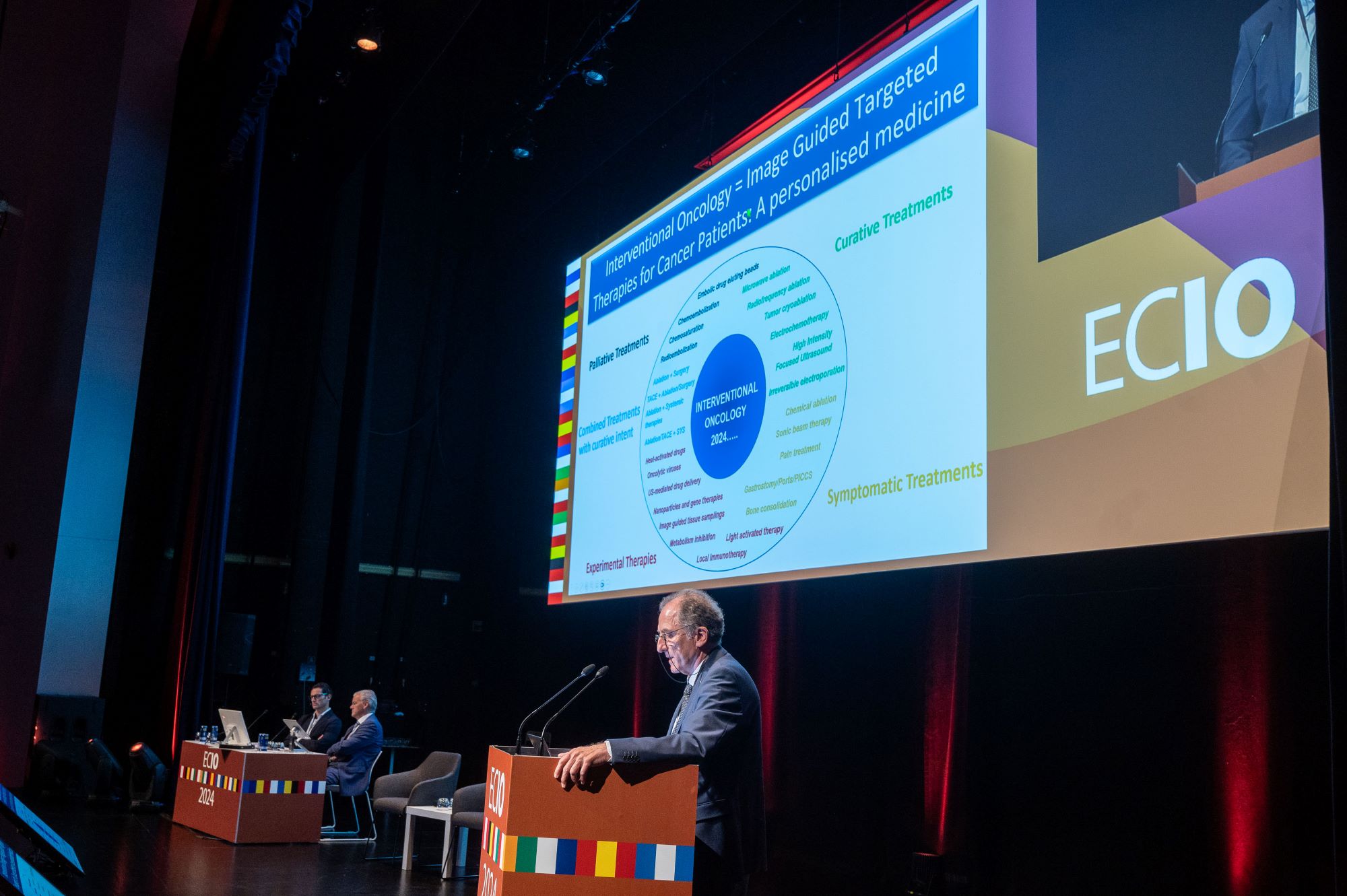The Best Scientific Paper Award
The Best Scientific Paper Award is given each year post-congress after consideration from both onsite attendees and the Scientific Programme Committee. The winner receives free registration for an upcoming CIRSE congress of their choice and an invitation to submit a manuscript to CVIR.
This year’s Best Scientific Paper Award was given to David-Dimitris Chlorogiannis of Harvard Medical School (Boston, MA/USA) for his and his team’s paper, “Propensity-matched cohort study: evaluating oncologic results in stage I renal cell carcinoma with percutaneous microwave ablation and robot-assisted partial nephrectomy.” Dr. Chlorogiannis told us more about his paper and the motivation behind it:
Chlorogiannis: Interventional oncology has been solidified as the fourth pillar of cancer care, along with surgery, radiotherapy, and chemotherapy. This study was primarily motivated by the need to provide high-quality evidence for the interventional treatment options for stage 1 renal cell carcinoma and how these modalities compare to traditional surgical approaches like partial nephrectomy. Our aim was to provide clinicians with robust comparative data for treatment decisions and ultimately improve patient outcomes in renal cell cancer management, since not every patient is an optimal surgery candidate and many patients do not wish to undergo surgery.
Submitting our paper to ECIO was a natural choice given its reputation as the world’s largest conference on interventional oncology. The submission process was straightforward and the experience of presenting at the convention centre in Palma was invaluable. ECIO offers a unique opportunity to interact with experts in the field from every corner of the world, exchange ideas, and receive constructive feedback on your research.
Our research team is humbled and grateful for this recognition. While we are honoured to receive this award, we would like to acknowledge the excellence of the abstracts presented by our peers at ECIO. Each contribution highlighted the diverse application of interventional oncology in a wide array of clinical scenarios and promoted oncology care. Our work sought to provide the highest possible evidence, given the absence of dedicated randomized controlled trials examining this specific research question. It focused on the long-term oncologic comparative effectiveness of microwave ablation and surgical partial nephrectomy for stage 1 renal cell carcinoma using a propensity scored matching analysis which is often employed in order to reduce the allocation bias in observational studies and “mimic” a randomized controlled study. We endeavoured this research with scientific rigor while also acknowledging some limitations that the observational nature of this study inherently carries. However, we believe that it represents robust clinical real-world data and it is a “screenshot” of the contemporary clinical practice which shows that interventional oncology techniques have been refined to the point that they can offer comparative long-term results to standard-of-care surgical procedures.
I would like to thank my co-authors, collaborators, and especially Prof. Dimitris Filippiadis for the guidance, as well as the Scientific Programme Committee for another memorable ECIO conference. Additionally, I would like to also express my sincere gratitude to my other mentors in the United States (from Baltimore, Boston, and New York), who, during my sub-internship and research years, taught me about interventional radiology and the skills required to be able to contribute effectively to such research endeavours. Overall, I feel very privileged to be part of the interventional oncology community which is committed to further investigating and refining minimally invasive treatment strategies for renal cell and other malignancies, ultimately striving towards personalized and optimized care for all patients.




